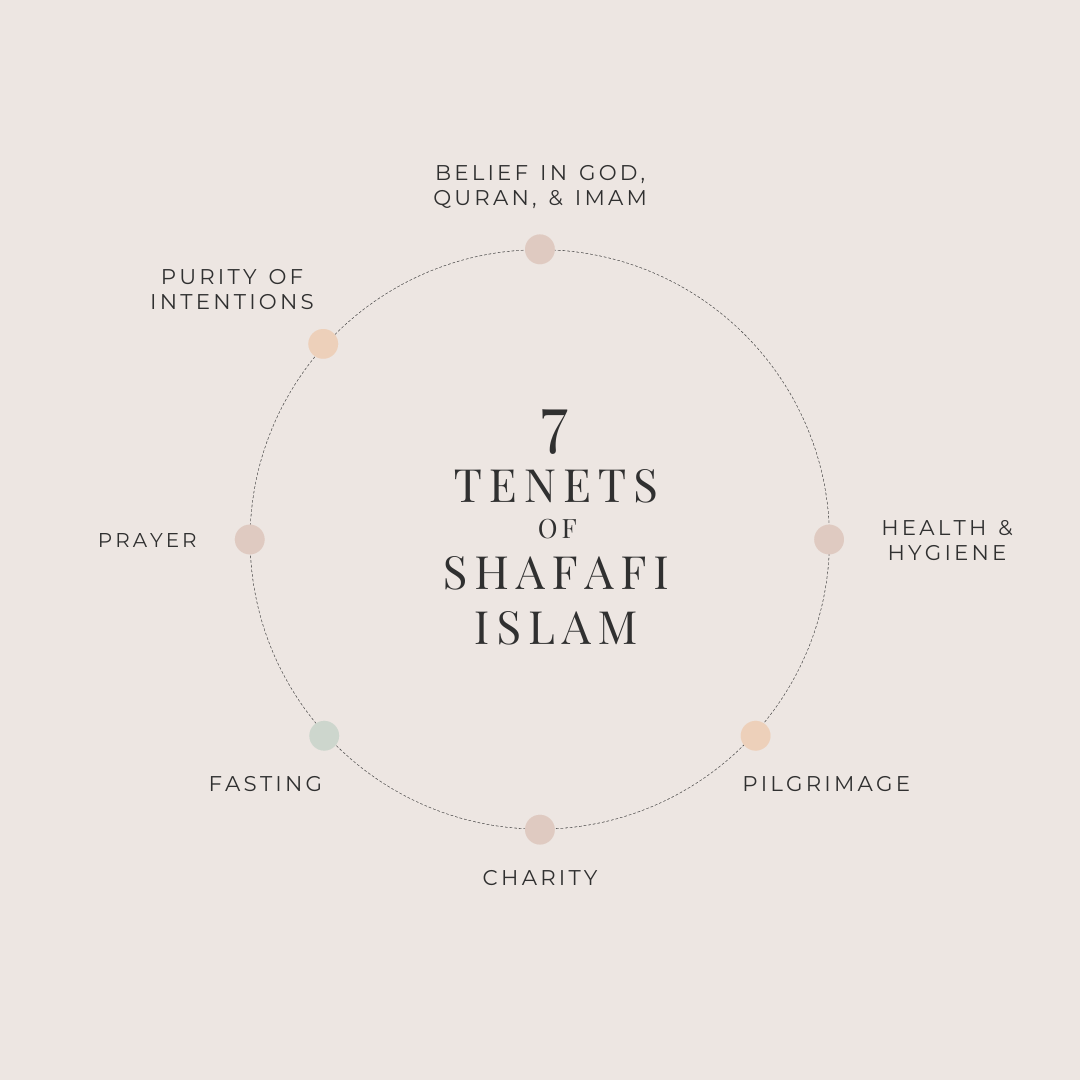There are 7 tenets according to Shafafi Islam.
- Belief.
- Purity.
- Prayer.
- Fasting.
- Charity.
- Pilgrimage.
- Hygiene.
Belief in God, the Message, and the Imam
The Islamic creed (also known as Shahada) is, “There is no deity except God. The Quran is God’s message to the Imam and the Imam is God’s effector.”
The term “God” is used here since the language we are using is English. In Arabic, this word is translated as “Allah”. There is no harm in using appropriate words from any language to refer to God. What is important is believing in the creed. For those who prefer to see the creed in Arabic:
.لا إله إلا الله. القرآن رسالة الله إلى الإمام والإمام هو فاعل الله.
Prophet Muhammad, the first Imam, was the messenger unto whom God bestowed the Quran. It is the duty of all Imams to take inspiration from the Message and create rulings and laws for their people.
The Imam is God’s hand on Earth. The Imam interprets the Message and releases Fatwas. The fatwas are practical rules and guidelines for Muslims. The current Imam is Imam Shafafi.
Purity of Intentions
A person must have good intentions at all times. This can only be achieved by being tolerant and kind with fellow human beings.
Prayer
Prayer is supposed to be meaningful. It is a direct communication to God. Rather than whispered incantations, prayer is done in the heart. Shafafi Muslims are to take moments throughout the day to meditate, albeit briefly, and pray directly to God. This can be done upon waking up, going to bed, and before each meal, before starting a journey, or it can be done while experiencing turbulence during a flight. The non-religious call it “hope” and “feeling lucky”. In Islam, this is “prayer” and “gratitude” to God.
God chose to exclude the method of prayer from the Quran. The current mainstream Sunni and Shi’a method of prayer is likely an evolution of the methods of pagan worship the Arabs were employing during Prophet Muhammad’s time. Today, over a billion of these mainstream Muslims chant memorized Arabic phrases and take part in synchronized yoga as if performing magic spells.
Fasting
Every Ramadan, Muslims are to attempt to abstain from vice and adopt healthy and positive habits. This includes giving up smoking, giving up alcohol, cutting down on portions or skipping meals to reduce obesity, giving up fighting with partners, giving up games and doing social service instead, and giving up social media and instead exercising.
Mainstream muslims give up food and water from dawn to sunset. This is fatal for those living close to the poles where a single period of dawn to sunset (a day) can last for 6 months. The rules mainstream muslims follow were invented for and by the Arabs for a time when humans did not have electricity and thus did not work night shifts, did not travel rapidly across time-zones, and did not live and work in space. Their blanket rules for fasting did not take into account that some people burn calories and lose hydration faster than others due to having different jobs and being in different geographic locations.
Shafafi Muslims do not give up water, a very beneficial substance, and instead give up habits that negatively impact them while adopting positive habits.
Charity
Charity (also known as Zakat) is mandatory. Muslims must contribute 2.5% of their income to the Imam for charity and religious programs.
Muslims must also devote some of their time towards the service of others as prescribed by the Imam.
Pilgrimage
Pilgrimage (also known as Hajj) is required by all Muslims who are financially capable. Pilgrimage is done to be in the company of the Imam and to be of service to the people. It can be done as often as yearly and as rarely as once in a lifetime.
Pilgrimage is not to Makkah, Saudi Arabia. Instead, the location changes from year-to-year to make it easier for Muslims to attend from all over the world.
Health and Hygiene
The human body is a gift that must be taken good care of spiritually as well as mentally and physically.
